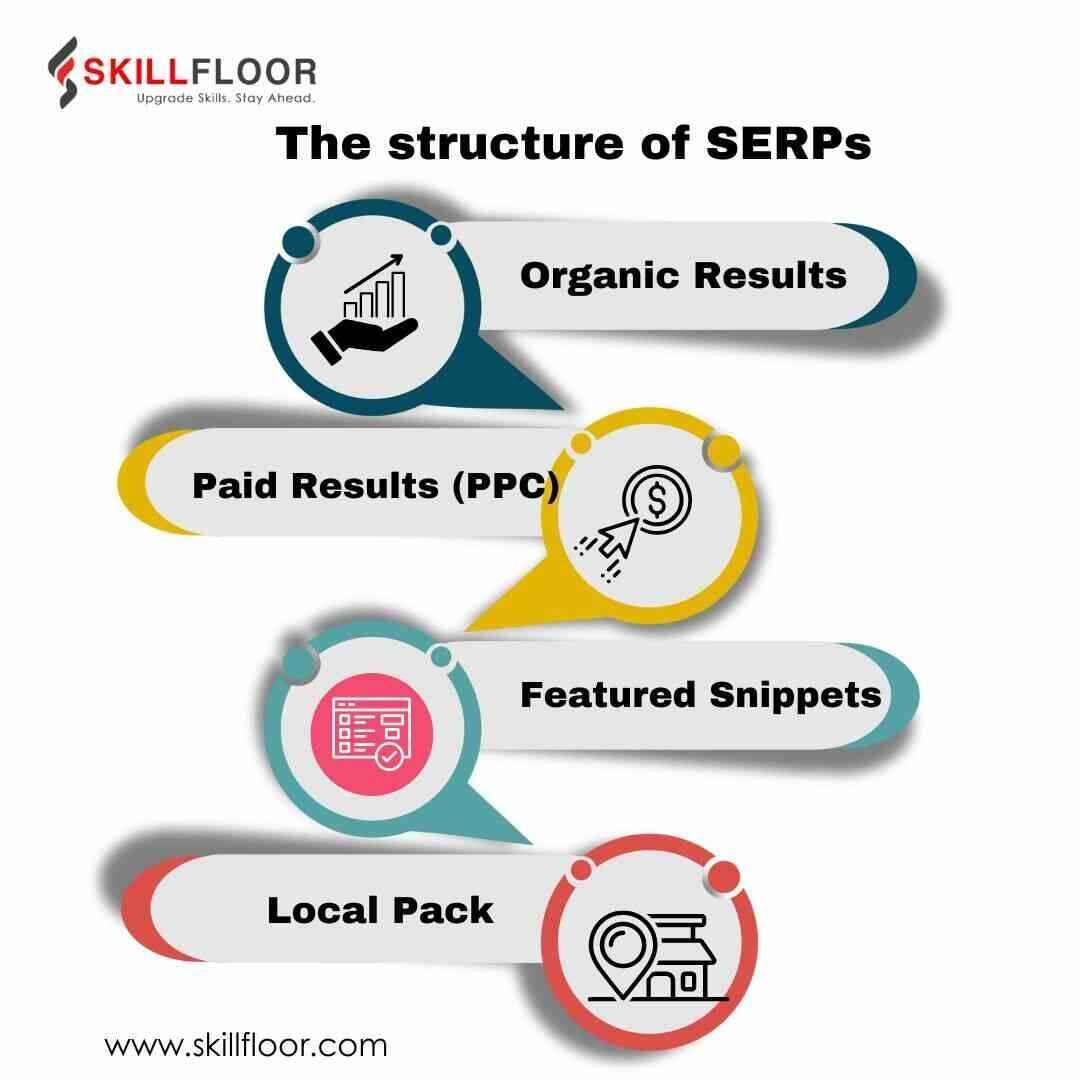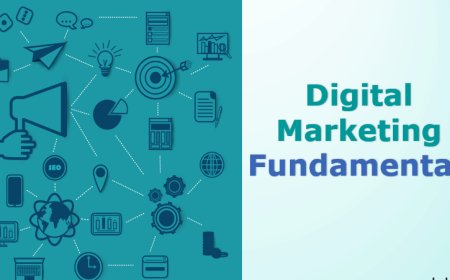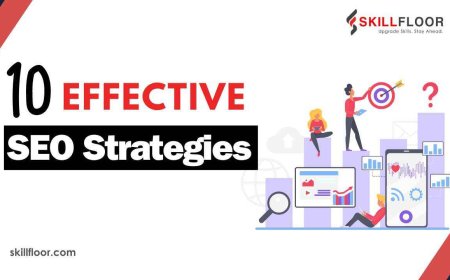SERPs: Search Engine Results Pages Explained
Understand SERPs: Learn how Search Engine Results Pages work, their importance, and strategies to optimize for better visibility and ranking in search results.

Hey there! Search Engine Results Pages, often known as SERPs. If you've ever questioned how search engines decide which websites to display when you type in a search term, We'll go over what SERPs are, how they work, and why they're so important in online marketing methods such as social media marketing, PPC advertising, and email marketing and together study the secrets of SERPs!
What Are Search Engine Results Pages (SERPs)?
The Search Engine Results Page (SERP) is the page provided by a search engine after a user enters a search query. In addition to organic search results, SERPs typically include pay-per-click (PPC) adverts and other elements, such as AI Overviews. Ranking on a SERP can be quite competitive because visitors are more willing to click on results toward the top of the page.
More than 90% of consumer traffic is directed to websites that appear on the first page of Google search results. Don't worry if your website isn't up yet. There are tactics you can take to improve your ranking, but first, you must understand search engine results pages and how they rank results.
The structure of SERPs
Understanding the structure of SERPs is important for optimizing your website to rank higher in search results. Here's an outline of the primary components you may find on a SERP:
-
Organic Results: These are non-paid listings that appear because they are relevant to the search query. Search engines utilize sophisticated algorithms to rank these pages.
-
Paid Results (PPC): These are adverts that businesses pay to appear at the top or bottom of search engine results pages. Pay-per-click (PPC) campaigns can be an effective technique to increase visitors to your website quickly.
-
Featured Snippets: These are highlighted responses that are displayed at the top of the SERP, offering rapid information without requiring a click-through to another website.
-
Local Pack: This section displays local businesses relevant to your search, including a map, addresses, and contact information.
-
Images and Videos: Depending on the search query, you may see a list of images or videos relevant to your search word.
-
Knowledge Panels: These are informational panels that are displayed on the right side of the SERP, usually for searches involving persons, places, or items.

Why Are SERPs Important for Your Business?
SERPs are important since they affect your website's visibility. The higher your site ranks in search results, the more likely users will click on it. Here is why optimizing for SERPs is important:
-
Increased Visibility: Ranking on the first page of search results greatly improves your chances of being spotted by users.
-
Higher Click-Through Rates: The top results in SERPs receive the majority of clicks. By appearing in these commercials, you can increase traffic to your website.
-
Credibility and Trust: Users trust websites at the top of search results more than those on subsequent pages.
How to Optimize for SERPs
Now that we know what SERPs are and why they’re important, let’s look at some strategies to help your website rank higher.
1. Search Engine Optimization (SEO)
SEO is the practice of optimizing your website to improve its ranking on organic search results. Here are some key SEO strategies
-
Keyword Research: Identify the keywords your target audience is searching for. Use these keywords naturally throughout your content, including in titles, headings, and meta tag descriptions.
-
Quality Content: Create valuable, informative, and engaging content that answers users’ queries.
-
On-Page SEO: Optimize individual pages with proper keyword placement, internal linking, and high-quality images.
-
Technical SEO: Ensure your site is fast, mobile-friendly, and has a clear URL structure.
2. Pay-Per-Click (PPC) Campaigns
PPC campaigns involve paying for advertisements to appear on search engine results pages. Here’s how to make the most of PPC
-
Targeted Ads: Create ads that target specific keywords relevant to your business.
-
Ad Quality: Ensure your ads are compelling and relevant to the search query.
-
Budget Management: Monitor and adjust your budget to get the best return on investment.
3. Social Media Marketing
While social media marketing doesn’t directly affect SERPs, it can drive traffic to your site, which can improve your rankings indirectly.
-
Engaging Content: Share content that resonates with your audience and encourages them to visit your website.
-
Social Sharing: Encourage users to share your content, increasing its reach and potential for backlinks.
4. Email Marketing
Email marketing is a powerful tool to drive traffic to your website, which can positively impact your SERP rankings
-
Newsletters: Send regular newsletters with links to your latest content.
-
Promotions: Share exclusive offers that encourage users to visit your site.
5. Search Engine Marketing (SEM)
SEM combines SEO and PPC strategies to increase your visibility on SERPs. By balancing both organic and paid efforts, you can maximize your chances of appearing at the top of search results.
The Role of Analytics in SERPs
To succeed in optimizing for SERPs, it’s essential to track your performance. Here are some key metrics to monitor:
-
Organic Traffic: The number of visitors coming to your site from organic search results.
-
Click-Through Rate (CTR): The percentage of users who click on your website after seeing it in the search results.
-
Bounce Rate: The percentage of visitors who leave your site after viewing only one page.
-
Conversion Rate: The percentage of visitors who complete a desired action on your site, such as making a purchase or signing up for a newsletter.
Types of Search Queries
Understanding all types of search queries is important for optimizing your Digital Marketing methods, such as social media marketing, PPC advertising, email marketing, and search engine marketing. There are three main categories of search queries:
Navigational Queries
These happen when someone tries to find a certain website or page. For instance, someone typing "Facebook login" wants to get directly to Facebook's login page. Businesses can capitalize on these queries by running advertising for their branded phrases, ensuring visibility even if consumers misspell or shorten their searches (Mailchimp).
Informational queries
Users do informational queries when they want to learn more about a subject without a commercial purpose. Examples include searches such as "How to bake a cake" and "What is a SERP?" Creating high-quality, educational material such as blog articles, videos, and infographics can help capture traffic and develop brand awareness
Transactional queries
These inquiries indicate an important need to make a transaction. These searches frequently include keywords such as "buy," "discount," or "deal". Optimizing for these keywords and implementing focused PPC advertisements can result in more conversions and income. According to studies, over 65% of the hits on transactional SERPs occur on paid advertisements
The Future of SERPs
Search engine results pages are constantly involved. Here are some trends to watch for in the future
-
Voice Search: As more users rely on voice-activated devices, optimizing for voice search will become increasingly important.
-
AI and Machine Learning: Search engines are using AI to better understand user intent and provide more relevant results.
-
Personalization: SERPs are becoming more personalized, showing results tailored to individual users based on their search history and behavior.
Understanding and optimizing for Search Engine Results Pages are essential to any online marketing plan. The ultimate goal of any SEO, PPC campaign, social media marketing, or email marketing strategy is to increase your SERP visibility. You can increase traffic to your website by generating great content, targeting the proper keywords, and regularly checking your performance.






























































